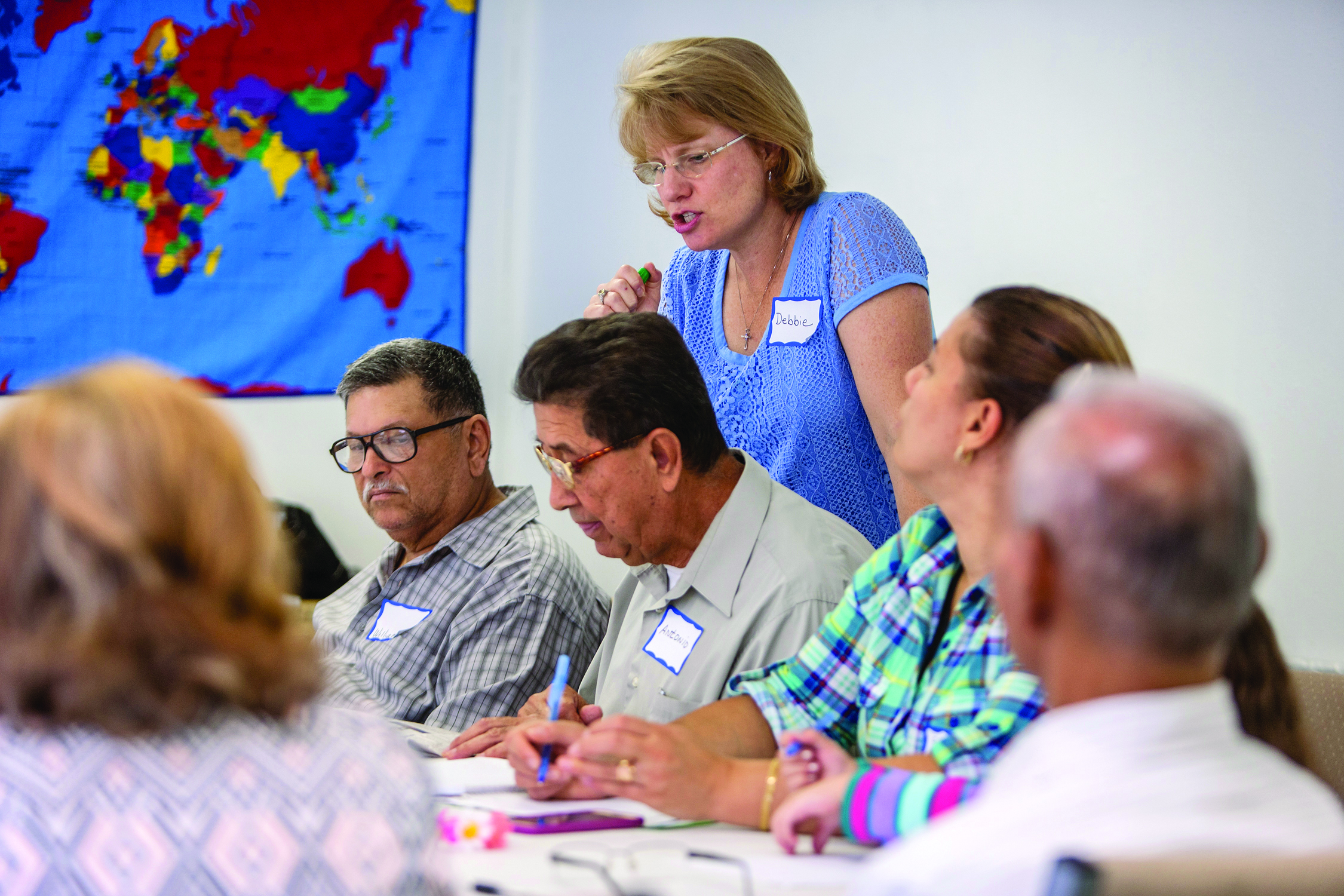As the number of people seeking to learn to speak English increases across the state of Florida, Baptist churches are responding to the need by offering English as a Second Language (ESL) classes as part of their local ministries.
Through these ESL ministries, volunteers are not only helping non-English-speaking people learn to speak a new language, learn new life skills and adapt to a new culture, they’re also sharing and demonstrating the gospel of Jesus Christ.
“We constantly have internationals, immigrants and migrants coming into our state. They struggle because they don’t’ speak English,” said Marc Johnston, community ministries catalyst for the Florida Baptist Convention. Recent statistics show approximately 4.6 million foreign-born immigrants living in the state as of 2021, but that does not include an estimated 100,000 refugees from the Ukraine.
“ESL is a great entry-level ministry where the gospel can be presented and great needs are met,” he said. “It helps individuals learn a language so they can communicate and also helps them adapt to American culture. Of course, their greatest need is to know Christ.”
To help increase these ministries in the state and to better equip current volunteers, the Florida Baptist Convention recently held an English language missions conference at Lake Yale Baptist Conference Center. This year’s theme, based on 1 Peter 4:9-11, was Building Community. Approximately 28 churches participated, with 11 new ministries represented and 105 people attending.
English as a second language is a great entry-level ministry where the gospel can be presented and great needs are met. It helps individuals learn a language so they can communicate and also helps them adapt to American culture. Of course, their greatest need is to know Christ.
The 100-plus in attendance was great, Johnston said, considering the annual conference had not been held since 2018 due to hurricanes and COVID. “The biggest thing we were excited about was having 11 new ministries represented. During COVID some of our older ministries had fizzled out so it was good to see new ones pop up.”
Two tracks were held at the conference. The Basic ESL Workshop is an intense 11-hour workshop led by two nationally trained and experienced workshop leaders. This course leads to ESL certification.
The Advanced Training track offered 36 breakout sessions offered by 14 faculty members. This track is for returning and experienced ESL leaders and offers a variety of courses designed to sharpen their skills and inspire creativity. These included Building Community with Technology, Words with Meaning, Building Community Through Games and Activities, and Drawn to Writing, which offers fun and practical strategies to teach simple narrative writing skills using drawing as a pre-write activity.
Training for this type of ministry is a must, Johnston said. “A lot of folks want to do this, but they don’t have an idea on how. Our training is for churches wanting to teach ESL. They learn the skills to do that, but the other big thing is learning how to do ministry within that.”
The Annual Lillian Isaacs Ladle Award went to Susan Russo, who serves in the English language missions ministry at Aspire Church in Jacksonville. It is named for the founder of Southern Baptist’s ESL Ministry, which dates back to 1959 and was previously called Literacy Missions.
Part of Russo’s nomination tells of the success ESL Ministries experienced during COVID. While in-person classes were halted, many state ministries experienced growth from around the world through online courses.
“Our local students benefited, but students from as far away as refugee camps in Thailand and countries in South America joined this community of ESL classes,” reads the nomination. “Our online presence statewide continues to grow and has provided English classes every week to new students locally and globally due to the seeds that Susan helped plant in the many ESL ministries statewide.”
While the church volunteers and their ministries benefit from the conference and the training, the real impact and results are seen in the success stories of international students and refugees.
“The big thing is how these students connect with these churches,” Johnston said. “You can tell the difference because those folks see the ESL class as a new family. They bond, and many will come back and help with the ministry after they graduate. They come back for the fellowship and for the relationships they’ve built.”

